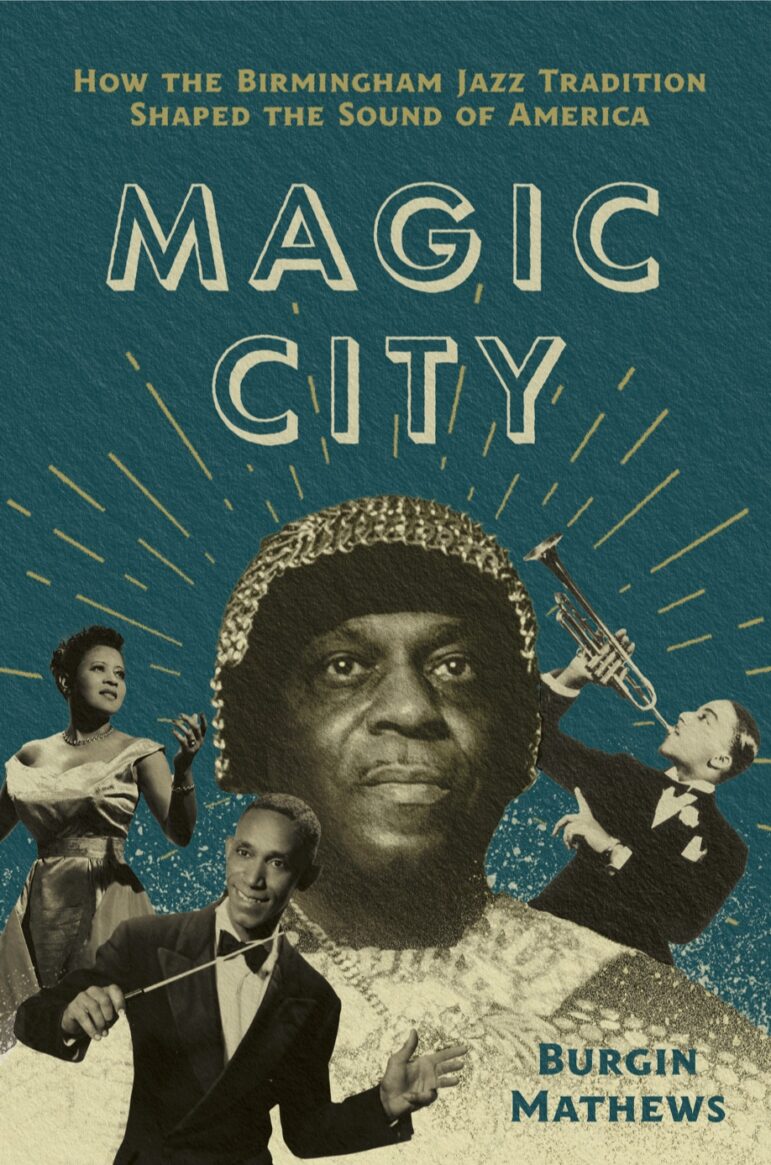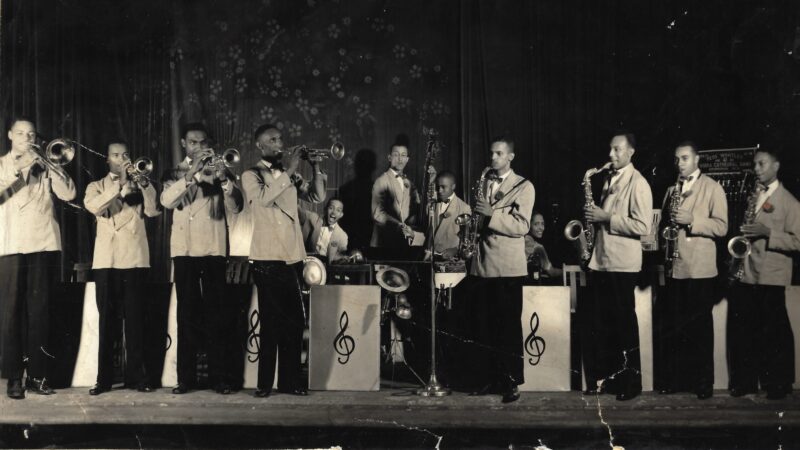Why Birmingham is overlooked when it comes to jazz
Jazz is associated with cities such as New Orleans, Chicago and New York. But Birmingham has had profound influence on the genre too. That’s the argument from a recent book called Magic City: How the Birmingham Jazz Tradition Shaped the Sound of America. The book’s author, Burgin Mathews, spoke with WBHM’s Andrew Yeager.

The central figure in Birmingham’s jazz story is this man named John “Fess” Whatley. Who was he?
Fess Whatley was a educator here in Birmingham and a musician and bandleader. Fess was his nickname, short for a professor. He was hired by Industrial High School in 1917 to teach printing at that school. Of course, today [it] is Parker High School. But he remained there into the 1950s. And in that time he instituted this hugely influential instrumental music program, which produced just legions of musicians who went out in particular into the world of jazz and, as this book talks about, helped shape the sound and the culture of jazz as we know it.
So he had this idea that music could be the pathway to a career. Give me a sense of where some of his students ended up.
His students ended up everywhere. Fess Whatley had this very rigid discipline that was founded in the reading of music, so that students could read any printed score and play it immediately. Fess Whatley students could typically play more than one instrument, so their value to a band doubled. They were trained in professional decorum and discipline and punctuality and dress and all of these elements that we might not even think of as strictly musical. They were all part of the musicians union before they graduated from high school.
And so Fess Whiteley’s rise coincided with the rise of the big bands. And in the era of the big bands, you had to be able to read anything that was put in front of you and to fit right into the saxophone section or trumpet or trombone section. And it was an often repeated kind of adage that if you came from Birmingham, you didn’t have to audition for a band. And I’m talking about the bands of Duke Ellington and Cab Calloway and Earl Hines and Count Basie and Billie Holiday, they all had in their bands, Birmingham musicians.
I’m thinking back to that big band era. Take me to Birmingham at that time. What was the atmosphere like?
Well, of course Birmingham was deeply, deeply segregated and it was in fact the culture of segregation that helped shape the culture of this music. And on Fourth Avenue North, that space was really the heart of this black cultural musical scene in Birmingham.
You mentioned this was all under segregation. And these are black performers, black musicians. Who was in the audience?
That is a complicated question. Typically out on Fourth Avenue, that was an African American space. And so the audiences were African American. There was some overlap in the sense that Fess Whatley as a bandleader, was the preeminent bandleader for dances both in Birmingham’s black and white social elite sets. So Fess Whatley and his musicians were playing dances at the Masonic Temple on Fourth Avenue, but they were also playing for the Birmingham Country Club. They were playing in white spaces as well as Black spaces. Sometimes venues might have special events in which white audiences were invited into these Black spaces, again under the strict kind of setup of a segregated space, to witness those musicians. In large part, however, the deep pervasiveness of segregation was creating very separate musical worlds.
When we think about cities associated with jazz, New Orleans comes to mind. Chicago, Kansas City, New York. Why isn’t Birmingham in that mix?
That is a great question, and I think there’s a few reasons for that. One is that the nature of the Fess Whatley training was such that a lot of Birmingham’s influence came sort of from the sidelines of jazz. We have a couple of big names from Birmingham, Erskine Hawkins and Sun Ra. But we have innumerable musicians who came from here but played on the sidelines of the bands.
I think Birmingham is left out of the story because a lot of its influence comes also from teachers like Fess Whatley. But when we talk about jazz it’s rare that we make teachers the center of the story.
And also Birmingham musicians did have to leave the city to really make their names in jazz. So a lot of musicians ended up in Chicago or New York or other places, and there made their careers. Birmingham itself did not become kind of a central hub where someone would go to make their career. Instead, I think the Birmingham Jazz story is part of the story of the Great Migration. These students, these musicians took the training that they developed here in Birmingham and the sounds that they developed here in Birmingham, and they used that as their ticket to other places.
House Dem. Leader Jeffries responds to air strikes on Iran by U.S. and Israel
NPR's Emily Kwong speaks to House Minority Leader Hakeem Jeffries (D-NY), who is still calling for a vote on a war powers resolution following a wave of U.S.- and Israel-led airstrikes on Iran.
Iran’s Ayatollah Ali Khamenei is killed in Israeli strike, ending 36-year iron rule
Khamenei, the Islamic Republic's second supreme leader, has been killed. He had held power since 1989, guiding Iran through difficult times — and overseeing the violent suppression of dissent.
Found: The 19th century silent film that first captured a robot attack
A newly rediscovered 1897 short by famed French filmmaker Georges Méliès is being hailed as the first-ever depiction of a robot in cinema.
‘One year of failure.’ The Lancet slams RFK Jr.’s first year as health chief
In a scathing review, the top US medical journal's editorial board warned that the "destruction that Kennedy has wrought in 1 in office might take generations to repair."
Here’s how world leaders are reacting to the US-Israel strikes on Iran
Several leaders voiced support for the operation – but most, including those who stopped short of condemning it, called for restraint moving forward.
How could the U.S. strikes in Iran affect the world’s oil supply?
Despite sanctions, Iran is one of the world's major oil producers, with much of its crude exported to China.




